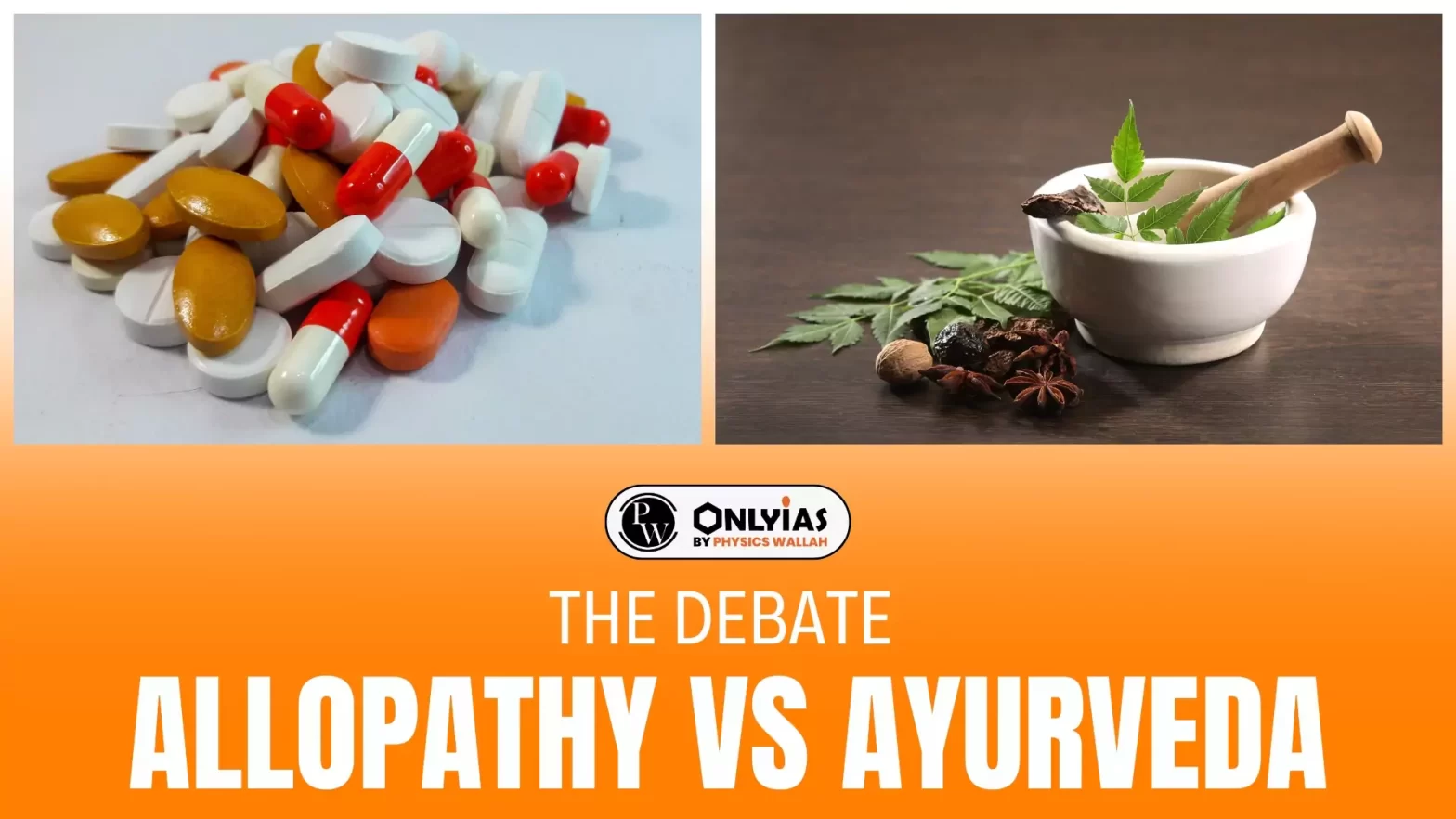![]() 8 Apr 2024
8 Apr 2024

| Relevance For Prelims: Traditional Medicine, Ayurveda, Yoga and Naturopathy, Unani, Siddha, Sowa Rigpa, and Homoeopathy (AYUSH), SMART 2.0, Health Ministry releases draft National Pharmacy Commission Bill, 2023, RPTUAS Scheme, and Generic Medicines.
Relevance For Mains: Issues with Traditional Medicines and Allopathy. |
|---|
The government should strongly handle the issue of misleading claims. Traditional medicine and allopathy should complement each other instead of opposing each other thus ensuring a healthy India progress.
| Prelims PYQ (2023):
Consider the following statements: Statement-I : India’s public sector health care system largely focuses on curative care with limited preventive, promotive and rehabilitative care. Statement-II : Under India’s decentralized approach to health care delivery, the States are primarily responsible for organizing health services. Which one of the following is correct in respect of the above statements? (a) Both Statement-I and Statement-II are correct and StatementII is the correct explanation for Statement-I (b) Both Statement-I and Statement-II are correct and StatementII is not the correct explanation for Statement-I (c) Statement-I is correct but StatementII is incorrect (d) Statement-I is incorrect but Statement-II is correct Ans: (b) |
|---|
| Must Read | |
| NCERT Notes For UPSC | UPSC Daily Current Affairs |
| UPSC Blogs | UPSC Daily Editorials |
| Daily Current Affairs Quiz | Daily Main Answer Writing |
| UPSC Mains Previous Year Papers | UPSC Test Series 2024 |
<div class="new-fform">
</div>